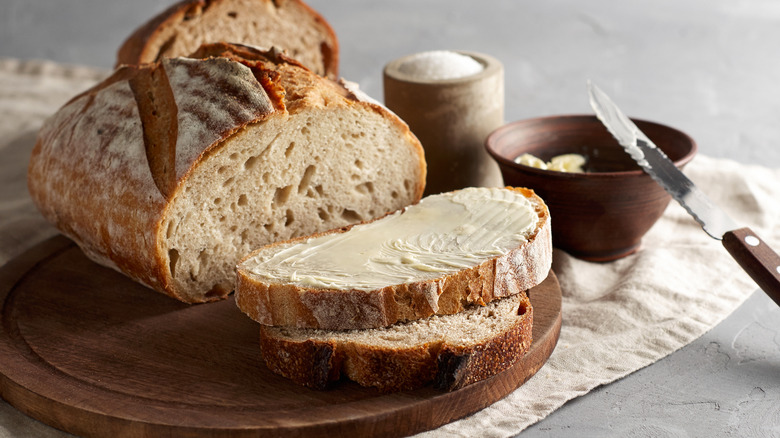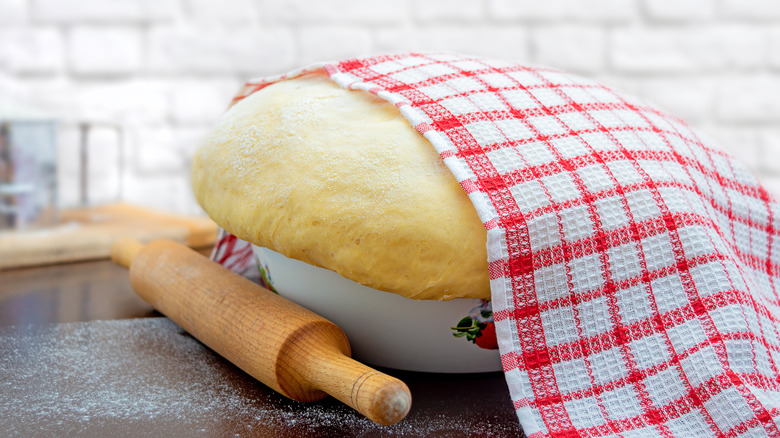What Does It Mean When You Overproof Sourdough?
A well-baked sourdough can be a mark of pride for any bread baker. According to Healthline, sourdough bread is leavened using 'wild yeast' that occurs naturally on the surface of the flour. Working with wild yeast is much more unpredictable, and it can be easy to make plenty of mistakes. This is in contrast to the much more conventional forms of yeast that are preselected for their standard rising times.
These are just some of the factors that allowed for the sourdough baking boom of 2020, but also made it so surprising. Financial Times reports that as folks were spending more time at home and limiting their shopping trips, thousands of people took up baking with sourdough. Flour was in short supply, but so was yeast. This forced many first-time bakers to dive into the bread baking equivalent of the deep end since they were able to harvest their own yeast from the environment essentially. Vox pointed out that baking can be an act of comfort in a chaotic time like the pandemic, but there's nothing calming about screwing up your first batch of sourdough.
Overproofed breads lack structure
One of the many things that can go wrong when working with sourdough is known as overproofing. Bob's Red Mill says that 'proofing' is just another way of describing the act of fermentation that occurs when working with yeast. The Institute of Food Science & Technology describes this process as the act of yeast feeding on sugars present in the dough to produce gasses that flavor and expand the dough. Proofing is a delicate balance of finding the right time that the yeast has done its job, but also hasn't overproofed yet.
Masterclass says that overproofing is when too much of the yeast has been converted to carbon dioxide. If the bread dough has more than doubled in size while it was proofing, and now appears deflated, it's very likely that it has overproofed. Challenger Breadware points out that this is because overproofing has compromised the bread's structural integrity, causing it to flatten out. This also means that your dough will not rise in the oven. In professional bakeries, steam plays a huge role in bread baking because it promotes this final rise, and creates an attractive final loaf, per Slate.
Luckily, there are some ways to save an overproofed dough. Masterclass says that if it is only slightly overproofed it can be salvaged by either reshaping the dough or by scoring it heavily to keep it from deflating in the oven. If nothing else, it can still make for a great flatbread.

